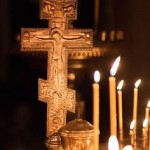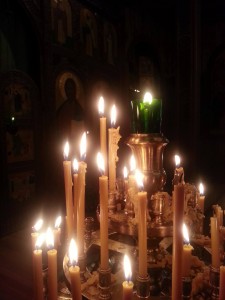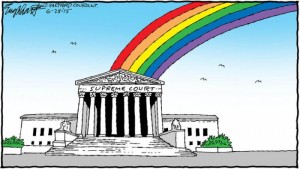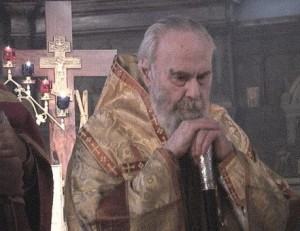Building A Bridge
Building A Bridge
August 20, 2017
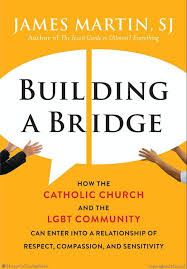 An Orthodox Christian reviews Building a Bridge – How the Catholic Church and the LGBT Community Can enter into a Relationship of Respect, Compassion, and Sensitivity by Father James Martin SJ.
An Orthodox Christian reviews Building a Bridge – How the Catholic Church and the LGBT Community Can enter into a Relationship of Respect, Compassion, and Sensitivity by Father James Martin SJ.
Orthodox Christians are supposed to be highly suspicious of anything written or preached by Catholic clergy, and that holds doubly true for anything writer or preached by Jesuits. Thankfully, I am not one of those Orthodox Christians otherwise I would have never read the charismatic book Building a Bridge – How the Catholic Church and the LGBT Community Can enter into a Relationship of Respect, Compassion, and Sensitivity by Father James Martin SJ. While some reviewers have criticized Father Martin for presenting a positive view of LGBT individuals, others believe that he did not go far enough in his support for full inclusion of the LGBT Catholics in the Church. Orthodox Christians who are LGBT could only dream of one of our own priests writing such a pastorally supportive and spiritually uplifting work. If Father Martin were an Orthodox priest writing in glowing support of LGBT individuals, he would be suspended and his bishop would demand that he issue an immediate retraction, recant his words and ideas, and even offer penance for his actions. If he would not comply, I have no doubt that such an Orthodox priest would be defrocked. The fact that Father James still enjoys the support of many of his brother priests, let alone his superiors, is for this Orthodox Christian, is nothing short of a minor miracle. (more…)

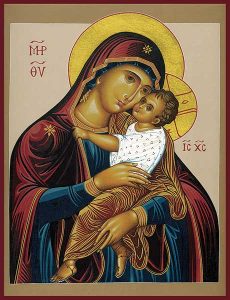
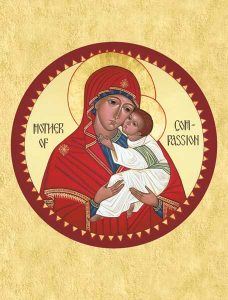 r completing my PhD in history, I was asked by the jurisdiction to which I belonged, the Ukrainian Orthodox Church, to write a detailed history of the Ukrainian Church in the USA. A significant number of Ukrainians began arriving in the United States and Canada before World War I, many seeking economic advancement and stability in a new world. Several of these were temporary immigrants, fully intending to return to Ukraine to reunite with their families. The First World War changed that narrative for many. Small communities were created in several areas: the mining towns of Pennsylvania, the big cities of New York and Chicago that offered factory employment, as well as the rich farming lands of the Midwest. Naturally many of the first community centers that Ukrainians created in the new world were churches, where they could gather for divine services offered in a language and setting that was familiar and welcoming to them. From these significant numbers a Ukrainian Orthodox diocese was created, with several parishes.
r completing my PhD in history, I was asked by the jurisdiction to which I belonged, the Ukrainian Orthodox Church, to write a detailed history of the Ukrainian Church in the USA. A significant number of Ukrainians began arriving in the United States and Canada before World War I, many seeking economic advancement and stability in a new world. Several of these were temporary immigrants, fully intending to return to Ukraine to reunite with their families. The First World War changed that narrative for many. Small communities were created in several areas: the mining towns of Pennsylvania, the big cities of New York and Chicago that offered factory employment, as well as the rich farming lands of the Midwest. Naturally many of the first community centers that Ukrainians created in the new world were churches, where they could gather for divine services offered in a language and setting that was familiar and welcoming to them. From these significant numbers a Ukrainian Orthodox diocese was created, with several parishes.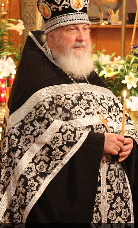 A very special priest died a few months ago. He was a priest who served as my spiritual father for many years. Archimandrite Athanasy, or simply Father “Ath” as many of his spiritual children called him, was a kind and gentle soul, who understood firsthand how difficult life can be, which made him a very compassionate person. Perhaps because he himself had a difficult life, full of illness and uncertainty, Father Athanasy understood the deep necessity for love, kindness, hope, joy and forgiveness in all people. He was a priest of the Russian Orthodox Church Abroad, and served in a few parishes in the US, Haiti as well as in the Russian convents in Jerusalem. He served in the most exalted of places, Jerusalem, and part of the forgotten world which is Haiti.
A very special priest died a few months ago. He was a priest who served as my spiritual father for many years. Archimandrite Athanasy, or simply Father “Ath” as many of his spiritual children called him, was a kind and gentle soul, who understood firsthand how difficult life can be, which made him a very compassionate person. Perhaps because he himself had a difficult life, full of illness and uncertainty, Father Athanasy understood the deep necessity for love, kindness, hope, joy and forgiveness in all people. He was a priest of the Russian Orthodox Church Abroad, and served in a few parishes in the US, Haiti as well as in the Russian convents in Jerusalem. He served in the most exalted of places, Jerusalem, and part of the forgotten world which is Haiti. 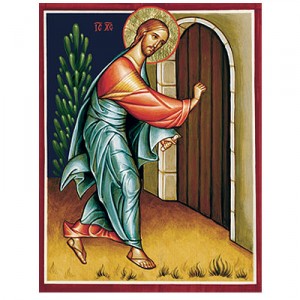 This week, I met with another local Orthodox priest.
This week, I met with another local Orthodox priest. Christmas has always been a difficult holiday for me to celebrate. This is true for many gay and lesbian people. I grew up in a home with two different religious and ethnic traditions, including two different dates on when to celebrate Christmas. While my Ukrainian Orthodox father insisted on raising us in his faith, my English, Anglican raised mother, wanted to keep a few of her traditions alive in our home. There seemed to be a constant battle in our home over when and how to celebrate the Christmas holidays. For my father, far from his homeland of Ukraine, Christmas was to be celebrated on January 7, and came replete with age old traditions that were not always very well adopted by his American children, who were very much influenced by the madness that is found around December 25 in this country. My mother, also far from her family and homeland in England, wanted to celebrate the holiday on December 25. Going to a church where she could sing Christmas carols she grew up with, having a tree and a festive meal, were all part of the holiday celebrations.
Christmas has always been a difficult holiday for me to celebrate. This is true for many gay and lesbian people. I grew up in a home with two different religious and ethnic traditions, including two different dates on when to celebrate Christmas. While my Ukrainian Orthodox father insisted on raising us in his faith, my English, Anglican raised mother, wanted to keep a few of her traditions alive in our home. There seemed to be a constant battle in our home over when and how to celebrate the Christmas holidays. For my father, far from his homeland of Ukraine, Christmas was to be celebrated on January 7, and came replete with age old traditions that were not always very well adopted by his American children, who were very much influenced by the madness that is found around December 25 in this country. My mother, also far from her family and homeland in England, wanted to celebrate the holiday on December 25. Going to a church where she could sing Christmas carols she grew up with, having a tree and a festive meal, were all part of the holiday celebrations. 